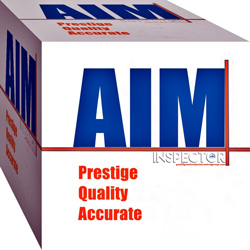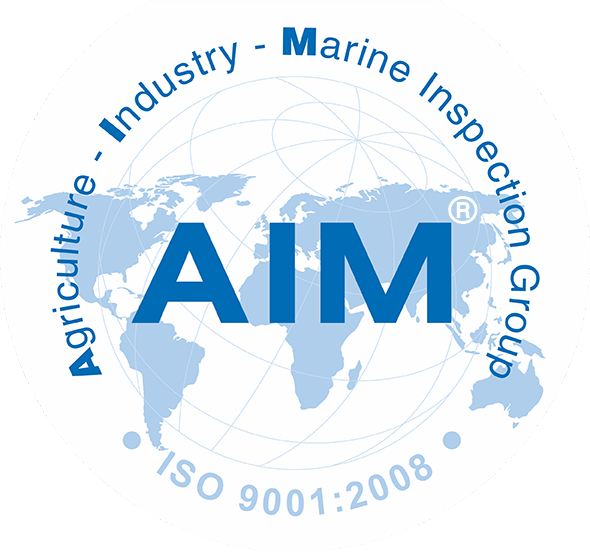Marine Warranty Survey
Marine Warranty Survey (MWS): Deep Dive
Definition and Purpose
Marine Warranty Survey (MWS) is a critical process in the maritime and offshore industries, focusing on ensuring the safety and integrity of marine operations and assets in accordance with applicable regulations and industry standards. This process involves a thorough review, verification, and approval of marine operations, particularly those associated with high-value and high-risk projects such as offshore oil and gas installations, wind farms, and complex transportations.
The primary goal of an MWS is to mitigate risks and minimize the potential for accidents, financial loss, or environmental damage by ensuring compliance with industry standards, guidelines, and best practices and Warranty surveys ensure risk levels are managed to prevent and minimise any potential emergencies, incident or vessel downtime which can result in significant loss of earnings.
Key Areas of Application
-
Offshore Construction Projects: Installation of platforms, pipelines, and subsea systems.
-
Transportation of Heavy Lift Cargo: Oversized and heavy cargo transported via sea.
-
Renewable Energy Projects: Offshore wind farms and floating solar farms.
-
Decommissioning Projects: Removal of offshore infrastructure.
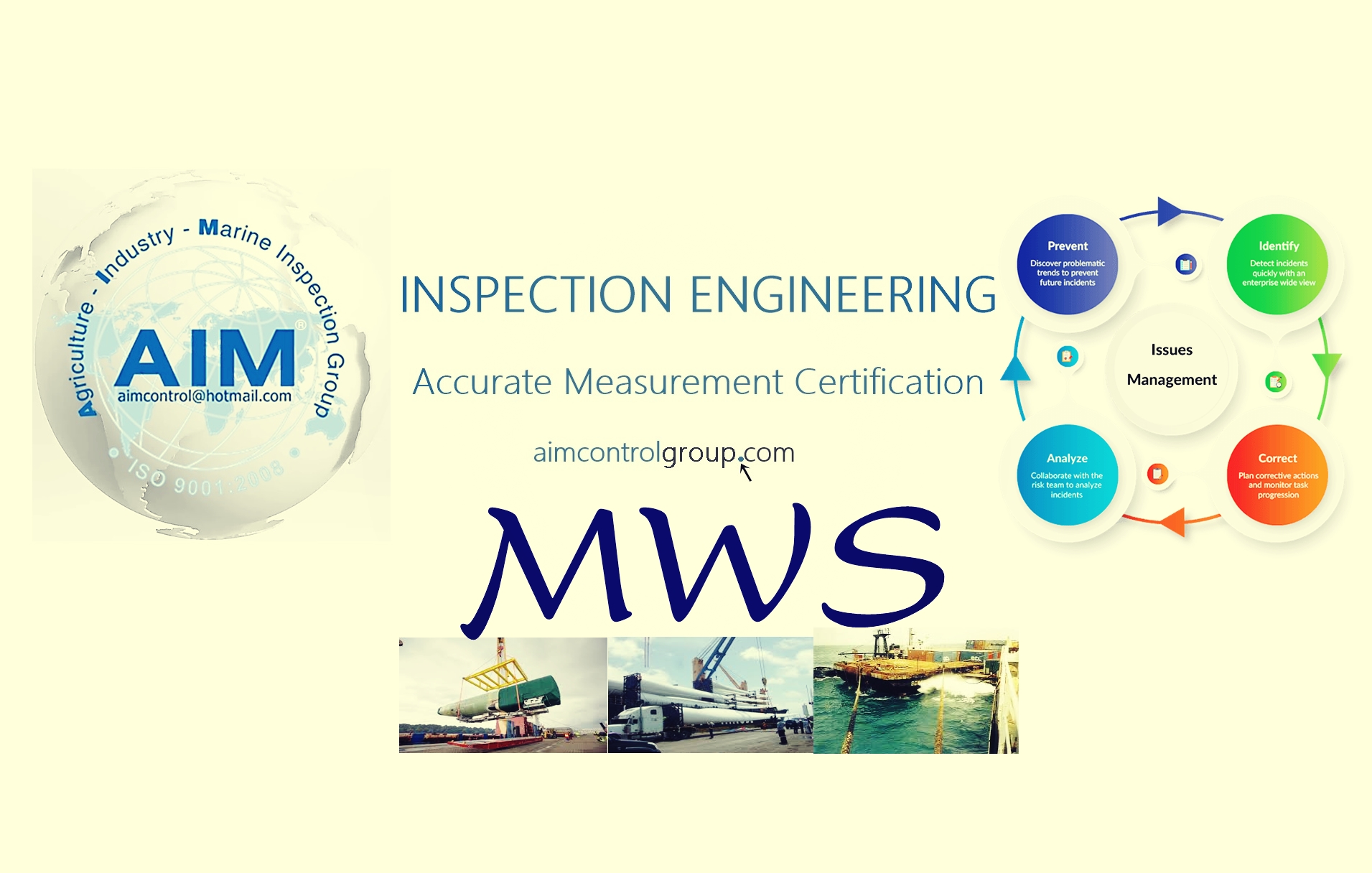
Marine Warranty Survey and Approval services are being provided by aim Group’s Our marine warranty surveyor and maritime expert team, of the requirements of not only an insurer but also Owners specified in a Warranty Clause covering a marine operation, to ensure that all necessary precautions are taken to avoid loss.
A survey typically includes review of all relevant documents, condition surveys of vessels and equipment, and approval of marine operations to ensure that best marine/cargo industry practice and correct procedures are followed and under taken safely, reliably, and in compliance with regulations.
-
Towing approval
-
Heavy lift transport
-
Project cargo
-
Managing risk of incidents
Quayside Operations:
– Loadout, Lifting, Float out
Review Of Engineering:
– Seafastening/Securing
Roles and Responsibilities of Our marine warranty surveyor at AIM Group
The importance and role and of marine warranty surveyor (MWS) is regularly misunderstood by the participating personnel in offshore and marine engineering project.
At AIM Group I The MWS acts as an independent unbiased entity
Our MWS act as the independent unbiased entity during the execution of his services to protect the interest of underwriter. Although MWS do not include advisory services, it has been found that client companies are highly benefited by including such experienced services in the scope of work at an early stage. The increase in cost for such services is minimal, but the return is high because of cost savings by eliminating and/or reducing re-work and maintaining the schedule. Even when such services are not included to start with, very often they are asked to play roles of advisor to break impasse that may have arisen due to:
Not meeting the original design criteria,
Non availability of proposed equipment,
Last minute changes in procedures,
Disputes between various participating parties that may have arisen due to any or all of the above items.
Marine Warranty Services
All marine operations carry certain risk, and to minimise the risk and to protect their interest, the underwriters may write a “warranty” clause in the insurance policy that would require an independent technical assessment and approval by a technical and competent marine surveyor and/or a company. The underwriter may recommend AIM Group's marine surveyor and/or company for an assessment and approval.
A typical marine project may have many marine operations phases that could include activities on land, e.g., moving cargoes in trailer or trucks, pulling and/or sliding cargoes with or without using jacks, lifting of cargo, etc., Each of these operational phases may need to be approved by designated MWS for insurance coverage. Any operation without the approval and presence of AIM Group's MWS will be considered a breach of the warranty and consequently the insurance coverage may lapse.
Suitability survey:
A suitability survey is commonly referred to survey activities to assess suitability of ships, barges, tugs, etc. for their intended usages. MWS of AIM Gorup who conducts such surveys to assess a proposed vessel regarding certain operation, such as, cargo transportation, capability of a tug for towing a cargo barge, launching a jacket, etc. During the survey, the surveyor will use all the pertinent project information, e.g., transportation route (inshore and offshore), bathymetrical data of the route, weather condition during tow, etc., beside the vessel specific information, such as condition of the vessel, lightship characteristics, certificates of classification society and other regulatory agencies, pumping capabilities, bollard pull of tug, capacity of deck of a deck cargo barge, etc. The assured must obtain a written document from the surveyor stating that the proposed vessel is fit for the intended use and any items requiring attention are closed out.
1. Pre-Operation Review
-
Document Verification: Examine engineering calculations, procedural documents, and risk assessments.
-
Compliance Check: Ensure compliance with relevant codes, standards, and guidelines (e.g., DNV, ABS, ISO).
-
Risk Mitigation: Identify and address potential risks before operations commence.
Review of Certificates
A detailed Review of Certificates includes as appropriate depending on the specific marine operation, but not limited to, certificates of crane including crane capability radius and lifting chart, slings, shackles, pin, jacking system, mooring ropes (wire and/or chain), winches, valid classification certificates, bollard pull certification, weighing certificates, any test certificate, including planned maintenance routines etc.
Review of Documents
The review of documentation includes all relevant documents that appertain to the specific marine operation, but not excluding, stability information provided by regulatory agencies, periodic and Annual survey reports provided by classification society, CMID, OVID, etc.
Review of Engineering Documents and Calculations
Review of Engineering Documents and Calculations The onsite MWS is supported by a team of engineers specialised primarily in the areas of naval architecture, ocean, offshore, metocean, and structural engineering. First, the relevant engineers should first go over the documents to see if the materials include engineering calculations to cover the scope of marine activities using the proposed facilities. The review of engineering documents and calculations is to confirm not only that they are appropriate for the proposed marine activities, but also, they are in accordance with proper engineering principles, codes, criteria, and industry practices. It is quite common for MW engineer (s) to carry out independent analyses to supplement the submitted calculations to expedite the procedure of review and approval. These calculations, unless the contract is otherwise obligated to, are not provided to the contractor or to the assured party.
Verify Equipment and Certificates
One of the most important tasks of AIM Control’s MWS is to inspect the equipment, such as cargo barge, pipe lay barge, derrick barge, tug for towing, etc., as well as the facilities for their suitability for the intended operation. The inspection of ships, barges, tugs, etc. is inspected to carry out on-hire and off-hire surveys to assess the suitability of the candidate vessels. Facilities of fabrication, loadout, and installation are usually selected before MW company gets involved. MWS of AIM Group do not approve such facilities. While attending the marine operation, the surveyor should get well familiarised with the facilities regarding capability and limitations so that he can suggest and/or recommend modifying procedures when necessary to suit the chosen facility. Equipment certificates are mainly related to the crane capacity, mooring chain and wire rope, slings, shackles, pins, jacking system, vessel class certificates, periodic and annual survey reports, stability letter by classification societies and/or regulatory bodies, bollard pull certificate of tug, etc. Many of these certificates are verified on site while attending marine operation activities. Other documents, e.g., stability letters, classification certificates, etc. are verified by engineering staff in the office. MW personnel verify the validity of the certificates with respect to time, rated capacity, and the suitability for the proposed activity.
Review Marine Operation Procedures
In an ideal situation, the attending surveyor should familiarise with the proposed marine operations before coming to the site of operation. The warranty surveyor must have the knowledge, experience, and ability to review each proposed marine operation on its own merit and to decide whether it is reasonable and safe. Most of the operations that he might review conform to widely used industry practices and he will therefore be guided by established rules, guidelines, and procedures. For unusual operations, he may have to consult other personnel and engineers in MWS office for their opinion. Nevertheless, whether the proposed marine operation is normal or unusual, the MW engineering personnel should always review the procedure for their feasibility and confirming that procedure is supported by proper calculations. The surveyor should be kept informed about the engineering review and advised if any precautionary measure is to be taken during the operation. The surveyor should try to determine if there is any deviation in the procedure from “industry practices” that may increase the risk of the marine operation. If an increase in risk is found, it will be the surveyor’s prerogative to accept the procedure as presented or he may either recommend changing the procedure, or impose restrictions, e.g., environmental limit, incorporating contingency plan, additional survey requirement and/or attendances, etc. to reduce the risk to acceptable level.
Safety of human lives and environment should be the major consideration when developing the procedures. The procedures should be outlined in steps with well thought-out contingency plans in case of bad weather, failure of equipment, damage of any components, etc.
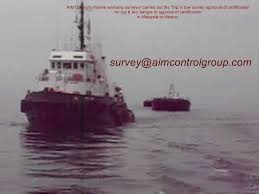
2. Site and Vessel Inspections
-
Condition Surveys: Inspect vessels, barges, and equipment to verify readiness.
-
On-hire and Off-hire surveys: It is also consisted of this survey if the vessel is on chartering and re-chartering (delivery or re-delivery).
-
Bunkers and Crew capacity survey:
-
Quantity Fuel Tanks Survey (QBS) for ships is to calculate fuel quantity (Tons - MT) before ship and fleet departure (to prevent shortage during Voy.);
-
Assessment of crew capacity to perform activities and operations related to experience, capacity, health and according to STCW crew standards;
-
Conditions for towing or transporting oversized and overweight cargoes of seagoing vessels and for specialist container as (OOG) Out of gauge cargo (towing vessels to and from ports; Maritime rescue, ship rescue; Escorting, clearing channels for ships to pass through narrow channels, many means of transport...) Compensation liability in towing contracts.
-
- Suitability Assessments: Confirm that vessels and equipment meet operational requirements.
- Ship Voyage Assessments: shipping routes ports of refuge assessment and forecast of weather conditions the ship will be passing through the shipping route.
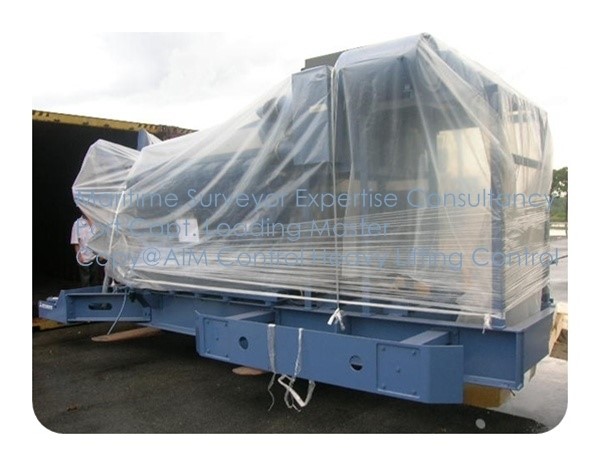
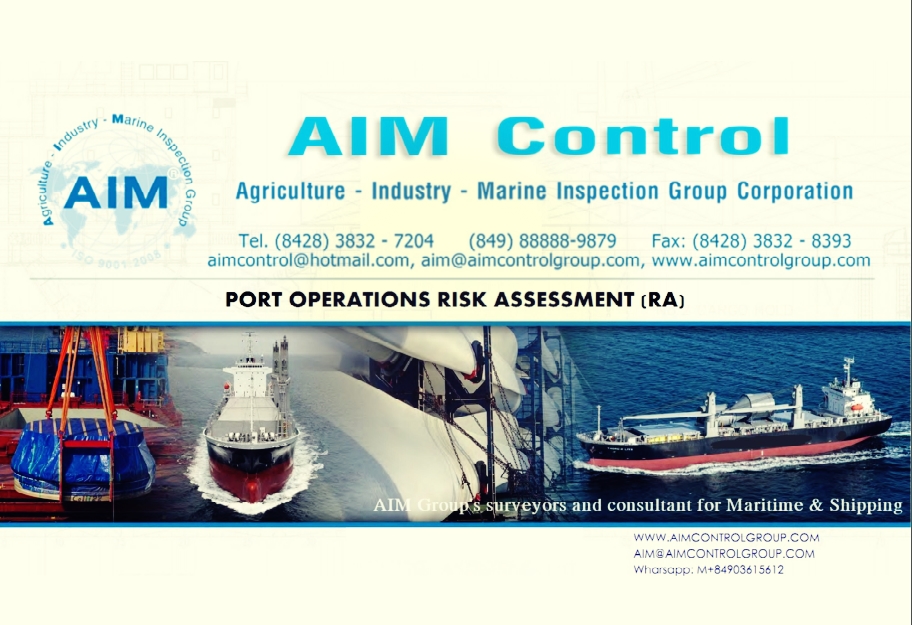
Attendance
On arriving at the facilities, the surveyor should assess the procedure with respect to the capability of the facilities and identify any deficiency that may need to be attended for the success of planned marine operation. The surveyor should have open communication with the engineering personnel for advice and to resolve any issues and concerns.
The MWS is to verify on site the conditions and/or certificates of all equipment. e.g., slings, shackles, pins, mooring lines, pumps for ballasting, cranes, pulling system, jacking system, theodolites for levelling, site condition, such as condition of dock/ pier, loading beams, etc. He should review the contingency plans for their suitability with the facilities. To minimise wasting time during the actual operation, the contractor should bring any operational and equipment deviations to the attending surveyor’s attention. The surveyor will take his time reviewing the deviations for the success and safety of the intended marine operation. He may need to discuss the procedure with the expertise at the home office before approving it.
3. Operational Oversight
On-Site Attendance: Be present during critical operations, such as heavy lifting, towing, or load-out.
Monitoring Activities: Ensure adherence to approved procedures and immediate correction of deviations.
Weather Monitoring: Assess and advise on environmental conditions impacting operations.
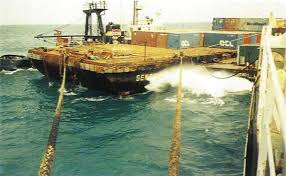
MWS
The onsite MWS will review all relevant marine procedures, method statements e.g., ballast/de-ballast loadout, rigging, launching, installation, etc.
Review of Calculations
The review of calculations includes all calculations pertaining to mooring arrangement during loadout, berthing condition prior to sail-away, bollard pull, ballasting, lifting, sliding, sea keeping, design of seafastening structures, structural integrity of cargo and vessels, pile driving, on-bottom stability, etc.
4. Certification and Reporting
Issuance of Certificates: Provide Marine Warranty Survey Certificates (e.g., Certificate of Approval) as proof of compliance.
Comprehensive Reporting: Document findings, approvals, and recommendations.
Certificate of Approval (COA)
The Certificate of Approval (COA) is issued by the attending MW surveyor prior to commencement of each marine operation. By issuing a COA, it is implied that the MWS of AIM Group finds the proposed marine operation acceptable based on review of all relevant document revisions, calculations, certificates, procedures, etc. The acceptability is based on meeting industry practices, best practices codes, regulations, criteria, and sound engineering principles. It is to be noted that carrying out any marine operation before obtaining COA or deviating from the approved operation without the consent of the attending surveyor may cause a breach of warranty.
Key Responsibilities of MWS at AIM Group
Safety Assurance
The MWS ensures that all operations are conducted safely to protect personnel, assets, and the environment. This involves stringent adherence to health and safety protocols.
Regulatory Compliance
Marine Warranty Surveyors bridge the gap between regulatory requirements and operational execution, ensuring all activities conform to legal and industry standards.
Risk Management
By identifying potential risks and enforcing mitigation strategies, MWS reduces the likelihood of accidents and failures.
Third-Party Validation
As independent entities, Marine Warranty Surveyors provide unbiased assessments and certifications that enhance stakeholder confidence.
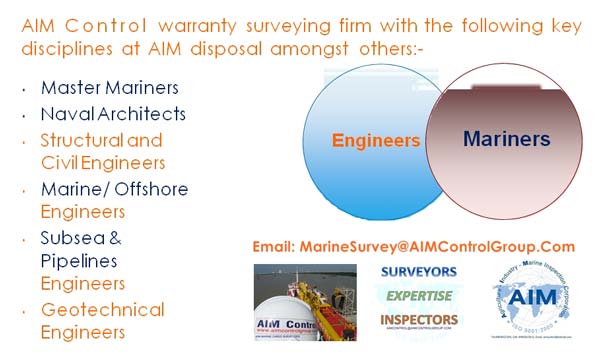
Scope of MWS Services and Responsibility
Our marine warranty surveyor, unless hired to serve as marine consultant, is appointed to protect the interest of the underwriter. To carry out the duty properly, the surveyor should only approve marine operations that would not have a considerable risk of damaging property, human life and the environment. Although all marine operations carry some “risk” element, it is essential that these risks are kept “as low as reasonably practicable’ (ALARP). The MW surveyor may note that the marine warranty companies are not contractually obligated with any of the assured’s contractors, e.g., tug operators, shipyards, installation contractor, riggers, designers, etc and can therefore issue no instructions to them. Although an experienced mariner (surveyor) is the one who has the final authority to issue the COA and is visible during the actual marine operations, the marine warranty services consist of five basic elements, e.g.,
-
Review engineering documents and calculations,
-
Verify equipment and related certificates,
-
Review marine operation procedures,
-
Attend marine operations,
-
Prepare a report.
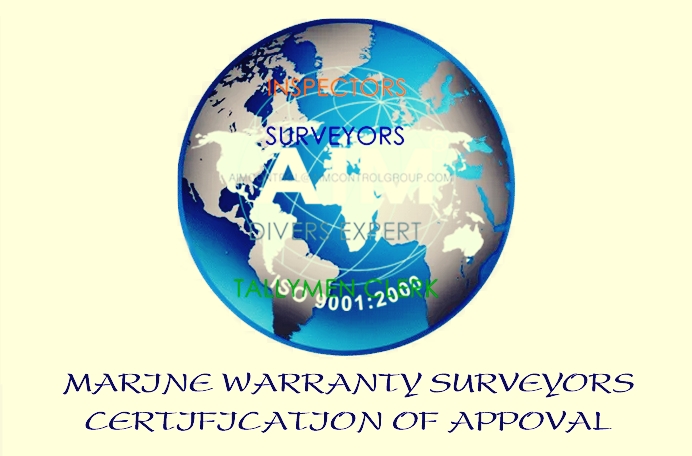
The surveyor I AIM Group
The MWS should attend all the meetings related to marine operation, activities, schedule, personnel assignment. etc. so that he can organise his schedule and communications with key personnel. The attending warranty surveyor and AIM Group Organization issues COA’s prior to any marine operations. The contractors should note that marine operation(s) should not be carried out without obtaining COA prior to the commencement of the actual operation, because it may cause breach of warranty. MWS is to be present on-site during all key activities. All participating parties must note that the attending surveyor may advise to stop and/or abandon certain marine activities whenever such activities in his opinion is unsafe, and chances of success are very low. The stoppage or abandoning operation may be due to weather, equipment shortcoming, facilities, capabilities of personnel, etc. If the contractor fails to comply with surveyor’s advice, it may lead to breach of warranty.
Benefits of Marine Warranty Survey
-
Enhanced Safety: Reduces operational hazards and potential for accidents.
-
Risk Mitigation: Protects investments by minimizing the likelihood of costly incidents.
-
Regulatory Compliance: Ensures projects meet all relevant legal and industry standards.
-
Stakeholder Assurance: Builds trust among insurers, project owners, and contractors.
-
Operational Efficiency: Promotes structured and well-documented operational procedures.
Challenges in Marine Warranty Survey
-
Dynamic Environmental Conditions: Managing operations in unpredictable weather.
-
Complex Operations: Navigating the intricacies of high-risk offshore projects.
-
Stakeholder Coordination: Ensuring effective communication among diverse project teams.
-
Regulatory Variations: Adapting to differing international standards and requirements.
Marine warranty personnel and Maritime Experts
Marine warranty personnel should be encouraged to advise and/or independent calculations if they recognise that such calculations and/or advice, when complied by the contractors, in effect become warranties themselves. Thus, when offering such services, marine warranty personnel should take great care that advice and/or calculations are proper for the intended operations. It is important for MW surveyors to maintain unbiased in their review and approval process, and to remember that their primary aim is to ensure all risk elements at each stage of the marine operations “ALARP”. They may face situations when they may be improperly accused of “playing too safe” “erring on the side of caution”. Thus, it is important to recognise that while exercising due diligence, they should avoid the practices of “playing too safe”. It is the broker’s and/or owner’s responsibility to contact the MW surveyor for providing the details of marine activities and scope of insurance coverage at the earliest opportunity enabling informed decisions by the MWS. Delays in contacting MWS of AIM Group can often lead to slippage of the scheduled marine activities.
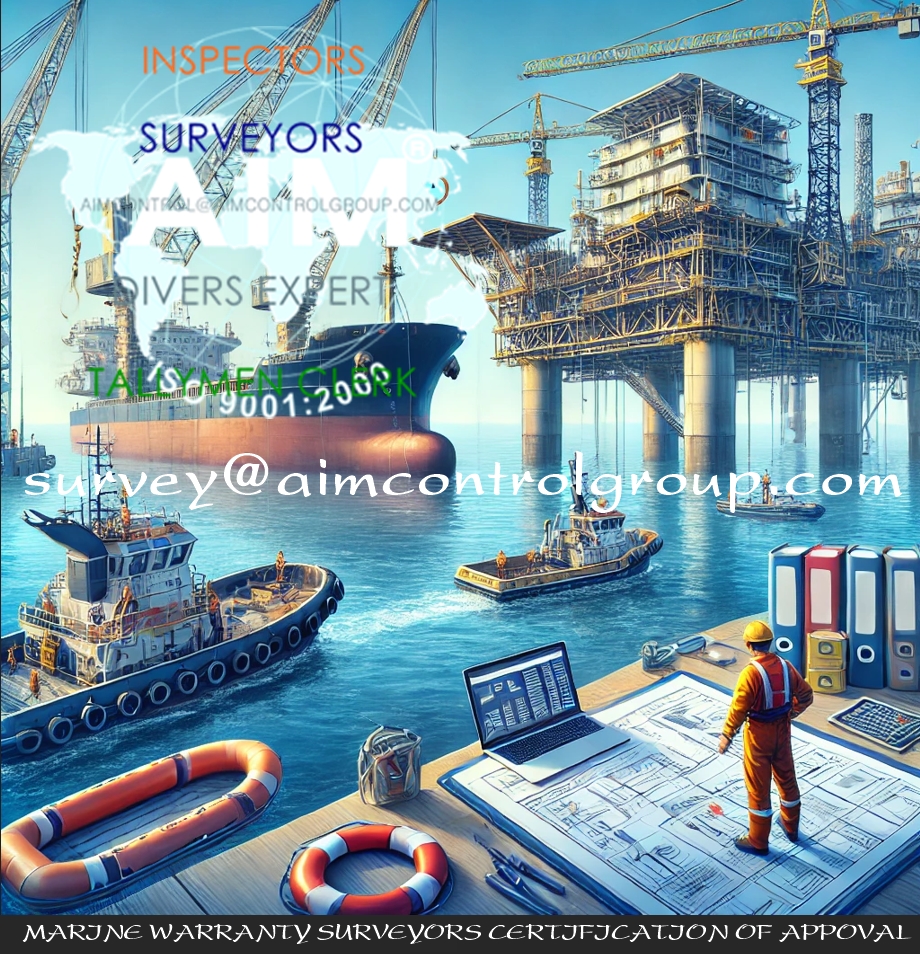
Conclusion
At AIM Group
We have a team of experts and surveyors with deep experience in offshore and marine industry with advanced degrees and certifications. Over 50 years providing MWS and COA services.
Our Marine Warranty Surveys play an indispensable role in the maritime and offshore sectors by ensuring safety, compliance, and efficiency. Through meticulous planning, rigorous inspections, and unbiased assessments, Marine Warranty Surveyors uphold the integrity of complex marine operations, providing essential assurance to all stakeholders involved.
See some of our MWS and COA services performed
marinesurveysandoffshoreinspectionservices
riskmanagementandlossprevention
Bunkersurvey onhireoffhiresurveys
